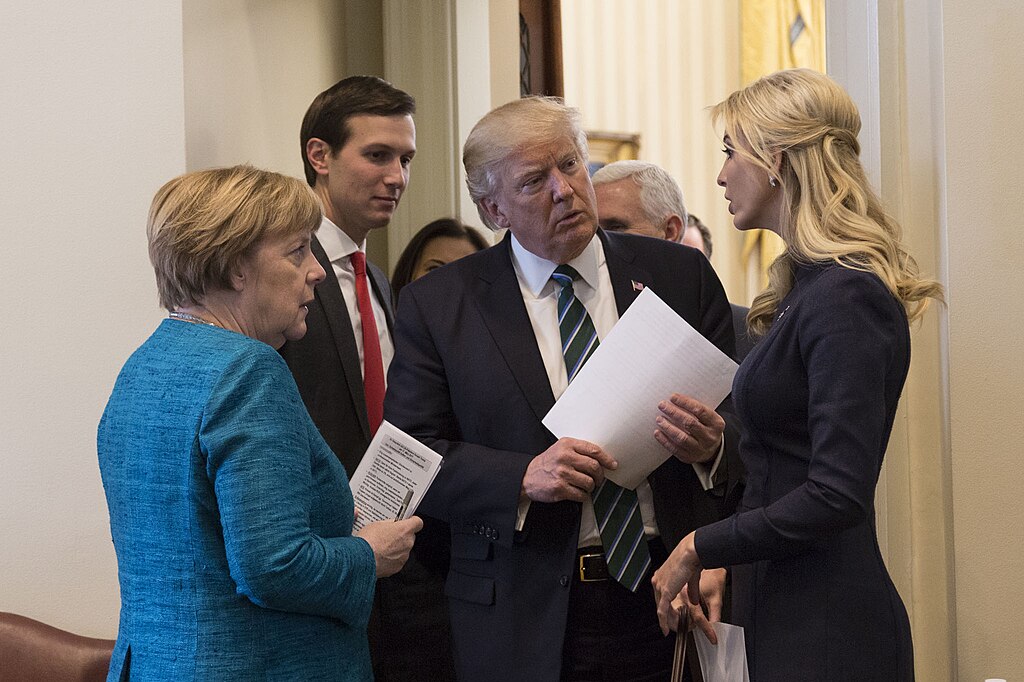Donald Trump’s second term begins with an audacious plan to tackle trade disputes with European nations, sparking controversy and debate on both sides of the Atlantic. Known for his “America First” policies, Trump aims to renegotiate trade agreements, reduce tariffs on key U.S. exports, and counter what his administration labels as “unfair” European trade practices.
Central to Trump’s strategy is a focus on leveling the playing field for American industries, particularly agriculture and manufacturing. His administration has signaled its intent to target longstanding issues, including subsidies for European agricultural products and stringent regulations that U.S. tech firms face in Europe. Critics, however, argue that Trump’s confrontational approach risks alienating allies at a time when global cooperation is needed.
Key Policies Aim to Reduce Tensions but Risk Escalation
The Trump administration has outlined plans to impose retaliatory tariffs if European nations fail to address trade imbalances. At the same time, efforts to strengthen bilateral agreements with individual countries, such as the United Kingdom and Germany, aim to circumvent broader disputes with the European Union. This piecemeal approach has drawn mixed reactions, with supporters praising its pragmatism and detractors warning of fragmentation within the EU.
In addition to tariffs, Trump’s team is advocating for greater market access for American companies in Europe. This includes pushing back against EU data privacy regulations and demanding the removal of subsidies for industries competing with U.S. counterparts. These measures, while designed to protect American jobs, could exacerbate tensions in an already volatile global trade environment.
Social Media Erupts Over Trump’s Trade Plans
Trump’s strategy for handling European trade disputes has ignited fiery reactions across social media platforms, with users expressing a range of opinions on its potential impact.
- @TradeExpertEU: “Trump’s tactics might backfire. Europe won’t back down easily, and tariffs could hurt U.S. consumers too.”
- @AmericaWins2025: “Finally, a president who stands up to Europe’s unfair trade policies. This will save American jobs! #MAGA.”
- @GlobalEconomist: “Trade wars don’t end well. Trump’s approach risks damaging relationships we’ve built over decades.”
- @TechForAmerica: “Removing EU red tape is long overdue. U.S. tech firms have suffered from Europe’s anti-competitive practices for years.”
- @PeacefulTradeNow: “We need cooperation, not confrontation. Trump should work with the EU, not against it. #GlobalTrade.”
- @FarmersUnited: “Europe’s subsidies are killing U.S. agriculture. Trump’s plan gives us hope for fair competition.”
A High-Stakes Gamble for Global Trade
As Trump moves forward with his bold trade strategy, the stakes for the U.S. and Europe could not be higher. While his supporters see the potential for economic revival and job creation, skeptics warn of unintended consequences, including the possibility of a full-blown trade war. With European leaders remaining steadfast in their defense of existing policies, Trump faces a formidable challenge in delivering on his promises.
The outcome of these trade negotiations will likely shape not only Trump’s legacy but also the future of transatlantic economic relations. As global markets brace for impact, all eyes are on Washington and Brussels to see how this high-stakes trade dispute unfolds.



 Trump Backs Nexstar–Tegna Merger Amid Shifting U.S. Media Landscape
Trump Backs Nexstar–Tegna Merger Amid Shifting U.S. Media Landscape  U.S. Announces Additional $6 Million in Humanitarian Aid to Cuba Amid Oil Sanctions and Fuel Shortages
U.S. Announces Additional $6 Million in Humanitarian Aid to Cuba Amid Oil Sanctions and Fuel Shortages  Netanyahu to Meet Trump in Washington as Iran Nuclear Talks Intensify
Netanyahu to Meet Trump in Washington as Iran Nuclear Talks Intensify  South Korea Assures U.S. on Trade Deal Commitments Amid Tariff Concerns
South Korea Assures U.S. on Trade Deal Commitments Amid Tariff Concerns  US Pushes Ukraine-Russia Peace Talks Before Summer Amid Escalating Attacks
US Pushes Ukraine-Russia Peace Talks Before Summer Amid Escalating Attacks  Norway Opens Corruption Probe Into Former PM and Nobel Committee Chair Thorbjoern Jagland Over Epstein Links
Norway Opens Corruption Probe Into Former PM and Nobel Committee Chair Thorbjoern Jagland Over Epstein Links  Trump Says “Very Good Talks” Underway on Russia-Ukraine War as Peace Efforts Continue
Trump Says “Very Good Talks” Underway on Russia-Ukraine War as Peace Efforts Continue  Missouri Judge Dismisses Lawsuit Challenging Starbucks’ Diversity and Inclusion Policies
Missouri Judge Dismisses Lawsuit Challenging Starbucks’ Diversity and Inclusion Policies  Trump Signs “America First Arms Transfer Strategy” to Prioritize U.S. Weapons Sales
Trump Signs “America First Arms Transfer Strategy” to Prioritize U.S. Weapons Sales  Trump Signs Executive Order Threatening 25% Tariffs on Countries Trading With Iran
Trump Signs Executive Order Threatening 25% Tariffs on Countries Trading With Iran  Trump Endorses Japan’s Sanae Takaichi Ahead of Crucial Election Amid Market and China Tensions
Trump Endorses Japan’s Sanae Takaichi Ahead of Crucial Election Amid Market and China Tensions  Federal Judge Restores Funding for Gateway Rail Tunnel Project
Federal Judge Restores Funding for Gateway Rail Tunnel Project  New York Legalizes Medical Aid in Dying for Terminally Ill Patients
New York Legalizes Medical Aid in Dying for Terminally Ill Patients  Trump Lifts 25% Tariff on Indian Goods in Strategic U.S.–India Trade and Energy Deal
Trump Lifts 25% Tariff on Indian Goods in Strategic U.S.–India Trade and Energy Deal  Iran–U.S. Nuclear Talks in Oman Face Major Hurdles Amid Rising Regional Tensions
Iran–U.S. Nuclear Talks in Oman Face Major Hurdles Amid Rising Regional Tensions  TrumpRx Website Launches to Offer Discounted Prescription Drugs for Cash-Paying Americans
TrumpRx Website Launches to Offer Discounted Prescription Drugs for Cash-Paying Americans  China Warns US Arms Sales to Taiwan Could Disrupt Trump’s Planned Visit
China Warns US Arms Sales to Taiwan Could Disrupt Trump’s Planned Visit 































